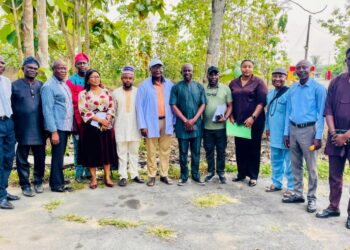With the recent Supreme Court pronouncement on local government autonomy, it is safe to say Nigerians, the governors and the Federal Government are again back to the back and forth debates and analyses associated with the matter.

While some see the pronuncement as a welcome development, some are skeptical about the execution of some orders despite the plethora of constitutional provisions still available and giving powers to the states of the federation for the creation, elections, finances etc of the same local government councils.
The Federal Government had instituted a legal action against the governors of the 36 states of the federation at the Supreme Court over alleged misconduct in the administration of local government councils. The suit filed by the Attorney General of the Federation (AGF) and Minister of Justice, Lateef Fagbemi, sought full autonomy for all local government councils in the country. Interestingly, the same Fagbemi happens to be the Counsel to the 36 states governors in a similar suit against the immediate past administration of President Muhammadu Buhari.

In the latest suit, the Federal Government specifically prayed the Supreme Court to issue an order on many grounds, some of which are unilateral, arbitrary and unlawful dissolution of democratically elected local government leaders; permission for the funds standing in the credits of local governments to be directly paid from the federation account as against the state joint local governments allocation accounts created by the State assembly laws as enshrined in the Constitution; stopping governors from further constituting caretaker committees to run the affairs of local government councils as against the constitutionally recognized and guaranteed elected system; injunction restraining the governors, their agents and privies from receiving, spending or tampering with funds released from the federation account for the benefits of local government councils when no democratically elected local government system is place; etc.


In this piece, because all others have already been taken care of by the Court’s previous rulings, I will only concern myself with the Supreme Court’s error of granting an order permitting the Federal Government to directly pay from the federation account, funds standing in the credits of local government councils to the councils as against the state joint local governments allocation accounts stipulated in the Constitution, the function of the Supreme Court as regards judicial review and constitutional interpretation and how such cannot be an alteration of the 1999 Constitution.
In Nigeria, the primary sources of law are the Constitution, Nigerian legislation, Nigerian case law or judicial precedent, received English law, Nigerian customary law and Islamic law. Amongst these, the Supreme Court pronouncements fall in the case law or judicial precedent sourse. This means all final judgements and pronouncements such as judicial review or constitutional interpretation of the apex court, are not mere pronuncements but are also parts of our laws.
In judicial reviews, the Supreme Court will examine the actions of the legislative, executive, and administrative arms of the government and will determine whether such actions are consistent with the Constitution or not; and actions judged inconsistent are declared unconstitutional and, therefore, null and void. Examples are its rulings on dissolution of elected council leadership, constitution of caretaker committees and Federal Government seizing allocations due to Lagos State local governments in the early 2000s.

In constitutional interpretations, the Supreme Court’s function is to deal with the textual, original, and the living of the Constitution and also give meanings of vague constitutional words and
phrases. Here it is about what the Constitution textually, originally and semantically meant. Examples are its rulings on ¼ spread of ⅔ of the States of the Federation and FCT and provison for the certificate level of education for President.
Generally, both legal review and constitutional interpretation by the Supreme Court will occur without any change or alteration to the Constitution. Both, especially if on the issue of allocation to the local government councils should not contravene the Section 9 of the Constitution, which sets out the procedures for formally altering the Constitution, as the only way that provison can be altered is through Section 9(2) of the Constitution of Federal Republic of Nigeria, 1999 (as altered) which says “Act of the National Assembly for the alteration of this Constitution, not being an Act to which section 8 of this Constitution applies, shall not be passed in either House of the National Assembly unless the proposal is supported by the votes of not less than two-thirds majority of all the members of that House and approved by resolution of the Houses of Assembly of not less than two-thirds of all the states”
The Constitution in Section 162 subsection (1) created the Federation Account, stipulates the mode of sharing in subsection (2), in subsection (3) says “Any amount standing to the credit of the Federation Account shall be distributed among the Federal and State Governments and the Local Government Councils in each State on such terms and in such manner as may be prescribed by the National Assembly”, and in subsection (5) says “The amount standing to the credit of Local Government Councils in the Federation Account shall also be allocated to the State for the benefit of their Local Government Councils on such terms and in such manner as may be prescribed by the National Assembly”
In subsection (6), it says “Each State shall maintain a special account to be called “State Joint Local Government Account” into which shall be paid all allocations to the Local Government Councils of the State from the Federation Account and from the Government of the State”, in subsection (7), the constitution stipulates that “Each State shall pay to Local Government Councils in its area of jurisdiction such proportion of its total revenue on such terms and in such manner as may be prescribed by the National Assembly” and finally, in subsection (8), it says “The amount standing to the credit of Local Government Councils of a State shall be distributed among the local government councils of that State on such terms and in such manner as may be prescribed by the House of Assembly of the State.”
So, with the Supreme Court ‘s pronouncement on direct payment of allocations to the local government councils, as against these clear provision of the Constitution above, it is safe to say the Supreme Court erred by ignoring and attempting to distort clear and unambiguous constitutional provision stating otherwise. The court, in effect, amended the Constitution albeit in clear contravention of the Section 9(2) constitutional procedures. It improperly amended the Constitution, and this ultimately has rendered this particular pronouncement non-executable, null and void. Only the National Assembly and State Houses of Assembly have powers to carry out the alteration in accordance with the constitutional provisions, and until that is done, the constitutional provisions remain in force.
For full autonomy of the local government councils, apart from the amendment of the sections earlier mentioned, the Revenue Allocation Act and the following constitutional provisons must also be properly amended:
1. Section 2(2) “Nigeria shall be a Federation consisting of States and a Federal Capital Territory”, to include Local Government Councils;
2. Section 7(1) “The system of local government by democratically elected local government councils is under this Constitution guaranteed; and accordingly, the Government of every State shall, subject to section 8 of this Constitution, ensure their existence under a Law which provides for the establishment, structure, composition, finance and functions of such councils”, to remove their being appendages of the States;
3. Section 8(3) “A bill for a Law of a House of Assembly for the purpose of creating a new local government area shall only be passed if – (a) a request supported by at least two-thirds majority of members (representing the area demanding the creation of the new local government area) in each of the following, namely – (i) the House of Assembly in respect of the area, and (ii) the local government councils in respect of the area, is received by the House of Assembly; (b) a proposal for the creation of the local government area is thereafter approved in a referendum by at least two-thirds majority of the people of the local government area where the demand for the proposed local government area originated; (c) the result of the referendum is then approved by a simple majority of the members in each local government council in a majority of all the local government councils in the State; and (d) the result of the referendum is approved by a resolution passed by two-thirds majority of members of the House of Assembly” to divest the States of powers to create local Government councils;
4. Section 197(1)(b) which created the State Independent Electoral Commission for the elections into the Local Government Councils must be deleted through amendment;
5. Establishment of Local Government Councils civil service like those of civil service of the Federation and civil service of a state in Sections 169 and 206;
6. Second Schedule Part II, Paragraph 10. “Where a Law of a House of Assembly provides for the collection of tax, fee or rate or for the administration of such Law by a local government council in accordance with the provisions hereof it shall regulate the liability of persons to the tax, fee or rate in such manner as to ensure that such tax, fee or rate is not levied on the same person in respect of the same liability by more than one local government council” and Paragraph 12. “Nothing in paragraph 11 hereof shall preclude a House of Assembly from making laws with respect to election to a local government council in addition to but not inconsistent with any law made by the National Assembly” to divest State Houses of Assembly of the powers to assign functions to and conduction of elections into the Local Government Councils;
7. Third Schedule, Part II, Paragraph B Subpara 4(a) “to organise, undertake and supervise all elections to local government councils within the State”, same on elections; and
8. Fourth Schedule. Functions of a Local Government Council “1. The main functions of a local government council are as follows: (a) the consideration and the making of recommendations to State commission on economic planning or any similar body on – (i) the economic development of the State, particularly in so far as the areas of authority of the council and of the State are affected, and (ii) proposals made by the said commission or body; (b) collection of rates, radio and television licences; (c) establishment and maintenance of cemeteries, burial grounds and homes for the destitute or infirm; (d) licensing of bicycles, trucks (other than mechanically propelled trucks), canoes, wheel barrows and carts; (e) establishment, maintenance and regulation of slaughter houses, slaughter slabs, markets, motor parks and public conveniences;(f) construction and maintenance of roads, streets, street lightings, drains and other public highways, parks, gardens, open spaces, or such public facilities as may be prescribed from time to time by the House of Assembly of a State; (g) naming of roads and streets and numbering of houses; (h) provision and maintenance of public conveniences, sewage and refuse disposal; (i) registration of all births, deaths and marriages; (j) assessment of privately owned houses or tenements for the purpose of levying such rates as may be prescribed by the House of Assembly of a State; and (k) control and regulation of – (i) out-door advertising and hoarding, (ii) movement and keeping of pets of all description, (iii) shops and kiosks, (iv) restaurants, bakeries and other places for sale of food to the public,(v) laundries, and (vi) licensing, regulation and control of the sale of liquor.
2. The functions of a local government council shall include participation of such council in the Government of a State as respects the following matters – (a) the provision and maintenance of primary, adult and vocational education; (b) the development of agriculture and natural resources, other than the exploitation of materials (c) the provision and maintenance of health services; and (d) such other functions as may be conferred on a local government council by the House of Assembly of the State”, to take their functions out of the control of the State Houses of Assembly.
Without the above, the attempt by the Federal Government to ambush both the National Assembly and the States through the Supreme Court will remain illegal, non-executable and null effort in futility.
Olusegun Oyeniyi is a Legislative Expert and Public Affairs Analyst based in Abuja.

You can get every of our news as soon as they drop on WhatsApp ...To get all news updates, Join our WhatsApp Group (Click Here)















